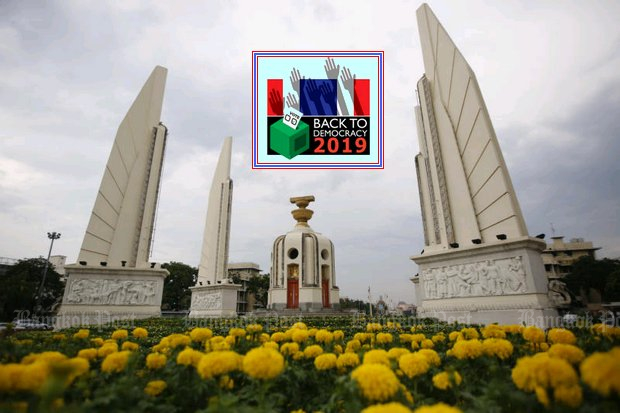
The government and the private sector agree that Thai rice prices are unlikely to fall further because of state measures and low supplies brought on by the drought.
Commerce Minister Apiradi Tantraporn said yesterday that while new output from the annual main crop was to be churned out in November and December, white rice prices were expected to stay at a minimum of 8,000-8,500 baht a tonne, with the price of Hom Mali fragrant rice at 13,000-13,500 baht a tonne.
Mrs Apiradi was speaking after a meeting with the Bank for Agriculture and Agricultural Cooperatives and the Thai Rice Exporters Association.
In lieu of the contentious and loss-ridden rice-pledging scheme, Prime Minister Prayut Chan-o-cha's government last year introduced a farm management plan aimed at stabilising crop prices.
The plan includes grants to reduce farmers’ production costs, interest rate subsidies and soft loans to farmers who have their own rice barns to discourage rice sales.
In the latest effort, the cabinet this month approved a Finance Ministry proposal to rent rice farmers’ land and pay them to grow other crops. But it requires related state agencies to conduct a survey of the number of farmers who want to volunteer for the programme.
Gen Prayut himself agreed with the proposal, saying it might be the best way to lure farmers in inappropriate areas to switch from rice to other crops.
The prime minister assigned the Interior Ministry, the Agriculture Ministry and the National Council for Peace and Order to jointly conduct the survey of farmers.
The cabinet also approved 4 billion baht for the fiscal 2016 budget to fund projects to help farmers affected by drought next year, in addition to the 7 billion baht already approved for drought-stricken farmers during 2015-16.
The Agriculture Ministry said drought conditions this year and next would affect an estimated 330,000 farm families in 22 provinces along the Chao Phraya River basin.
Thailand is forecast to have lower rice production in the main crop with 23 million tonnes of paddy this year, down from an earlier view of 27-28 million, due to the drought.
In a bid to stabilise domestic rice prices ahead of the main crop’s new release of supply in November and December, the rice policy and management committee this week agreed to delay sales of high-quality rice in state stocks.
The panel will allow the sale of 2 million tonnes of low-quality rice stocks, mainly for industrial use.
The government controls some 13.5 million tonnes of rice stocks, down from a combined 18 million tonnes amassed from previous rice schemes.
Charoen Laothammatas, president of Thai Rice Exporters Association, said Thai rice prices would depend largely on how the government manages to dispose of the remaining stocks.
If government rice stocks fall to 5 million tonnes and drought conditions continue, Thai rice prices are likely to hit 10,000 baht a tonne in the year to come.
In a move to stabilise Hom Mali paddy prices, rice exporters are ready to buy Hom Mali paddy at a target price of 13,500 baht a tonne, Mr Charoen said.


